Chile transgender: 'Growing up here is torture'
- Published
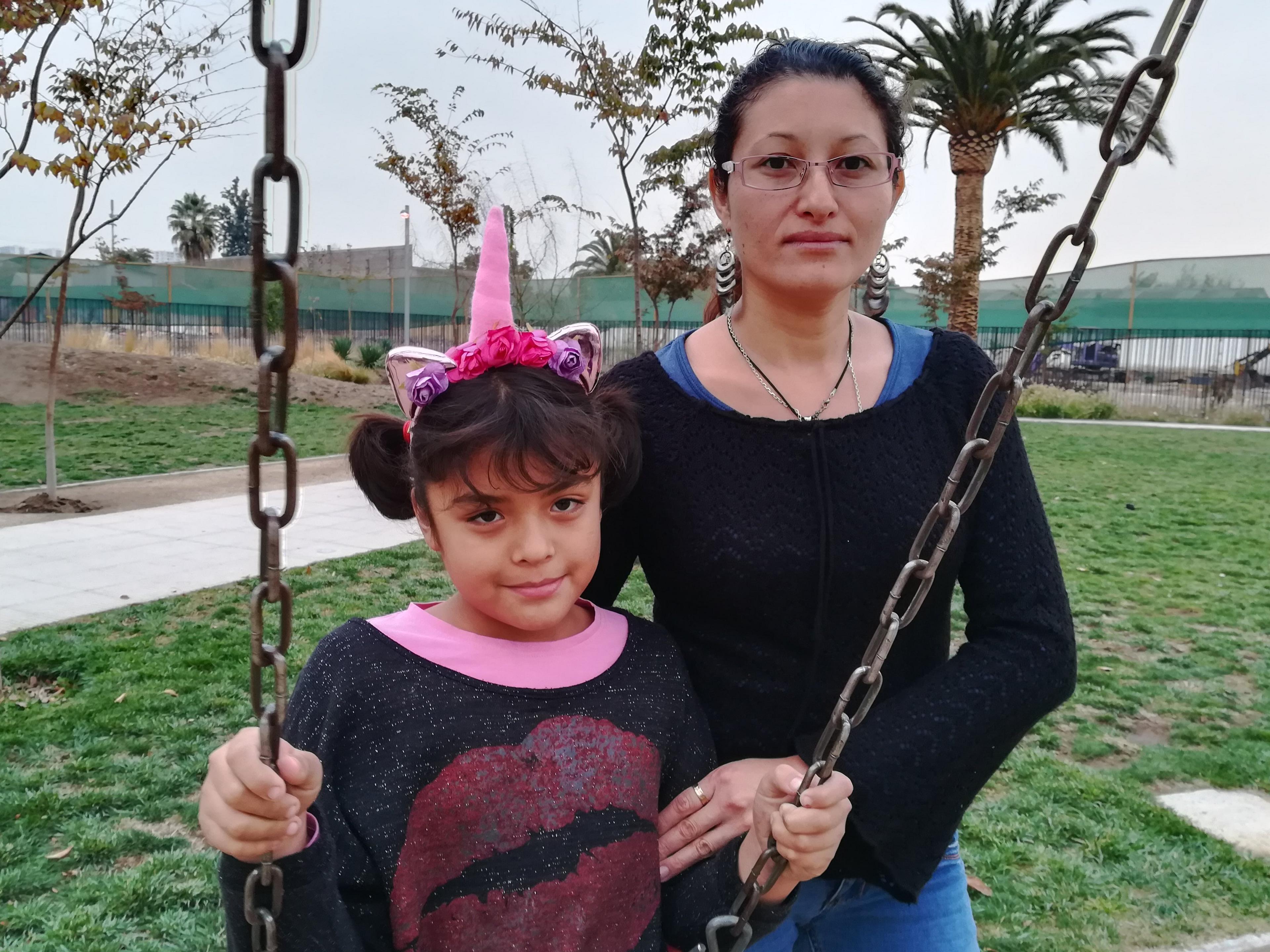
Jacqueline confronted drug dealers to make sure her transgender child would not be bullied
"I live in a rough neighbourhood and there are drug dealers in our building. I went to them and told them that my son was going to start dressing as a girl and that I hoped they would support us and talk to their children, so he wouldn't get bullied," recalls Jacqueline.
"Surprisingly they have all been fantastic. They congratulated me on my courage and I have never had any problems," she says, laughing, while recounting the moment her son Vicente became Sofía.
But it has not all been plain sailing for Jacqueline and eight-year-old Sofía.
'Not my name'
Chile, where they live, is socially conservative, and transgender people who want to change their name have to go through a lengthy application which can take years to complete.
Transgender rights groups say it is a humiliating process which involves getting reports from psychologists and psychiatrists, and stripping off to have naked photos taken to show what sex they are.
One of those who has not yet been able to complete the legal process is Daniela Vega, the Chilean actress who made history by becoming the first transgender presenter at the Oscars ceremony.
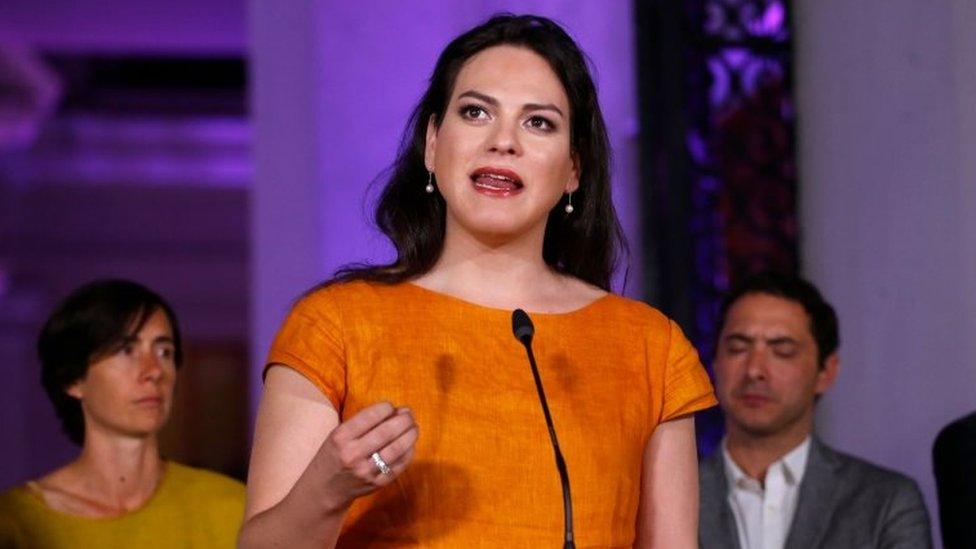
Daniela Vega has been highlighting the issue of transgender rights in Chile
Speaking at a news conference following the ceremony, she complained that, in Chile "I have a name on my identity card that is not my name".
A gender identity bill - which would allow trans people to identify themselves with their preferred names rather than their assigned ones - is currently being discussed in congress.
It has the backing of President Sebastián Piñera and would make changing your sex and name on your ID a quick process which could be done at a registry office.
But the details are still being discussed, including what the minimum age will be.
'Growing up here is torture'
Transgender activists want children as young as 14 to be allowed to change their name with the consent of both parents and the support of psychologists.
Jacqueline argues it should be even lower, from age 10.

You may also be interested in:

"Growing up here is torture for them," she says about transgender children, while sitting on a park bench watching Sofía and her sister play.
She says that it was clear from early on that Sofía, whom they called Vicente back then, wanted to be a girl.
"As soon as he could walk, he would take his sister's dresses and put them on. He always wanted to play with her toys and not his," she recalls.
Vicente hated his first school, where the boys ostracised him because he did not like football and wanted to play with dolls.
"He hated going to the hairdresser and would cry and have stomach pains," she remembers.
"He said: 'Why are you doing this to me, when you know all I want to do is to grow my hair and have plaits?'" Jacqueline says.
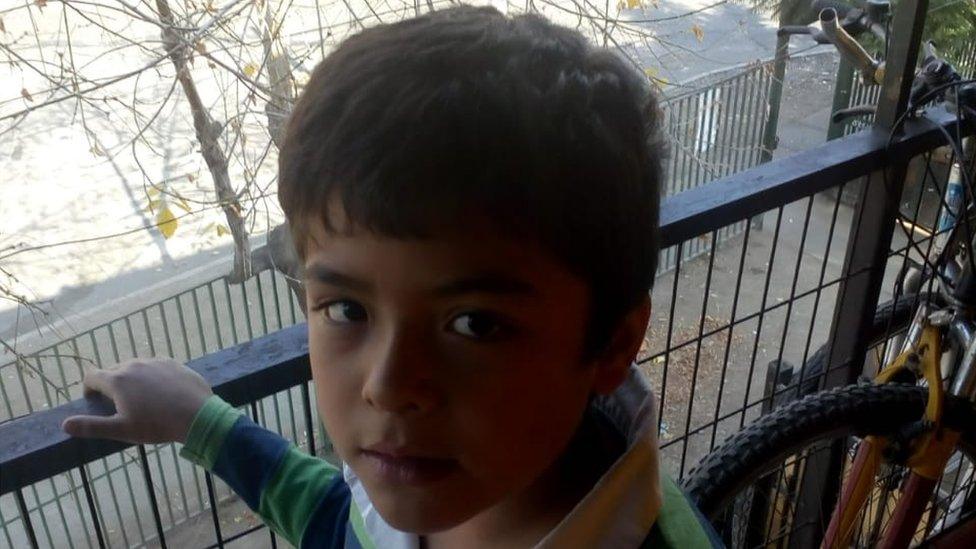
Sofía's birth name was Vicente
Initially Jacqueline and her husband thought their child was gay, but after seeing a television documentary about trans children they took her to see a number of psychologists who eventually confirmed she was transgender.
When Vicente was seven, the couple decided that for her happiness, she should live as a girl.
From then onwards, Vicente was allowed to grow her hair and wear girl's clothes and call herself Sofia.
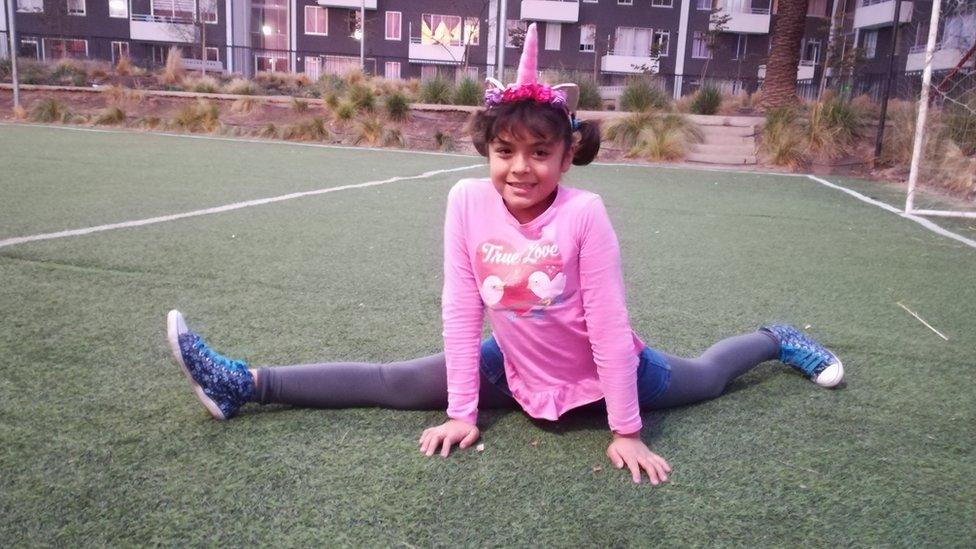
Sofía loves unicorns and gymnastics
But not everyone was understanding, Jacqueline says, and Sofia's ID - which still carries the name Vicente and identifies her as a boy - has created problems.
"At the health centre a doctor said: 'What is this? A boy or a girl?' And I replied: 'She's a girl!' and the doctor looked at her ID card and said: 'But it says he's a boy!'" Jacqueline recalls.
"I said please don't ever say that in front of her again. And the doctor gave me a look as if I was mad. And replied 'As you like' in a very sarcastic tone of voice."
Backlash
Jacqueline and parents like her want to prevent their children from having to go through these types of experiences and are trying to help people understand why it is such an important issue.
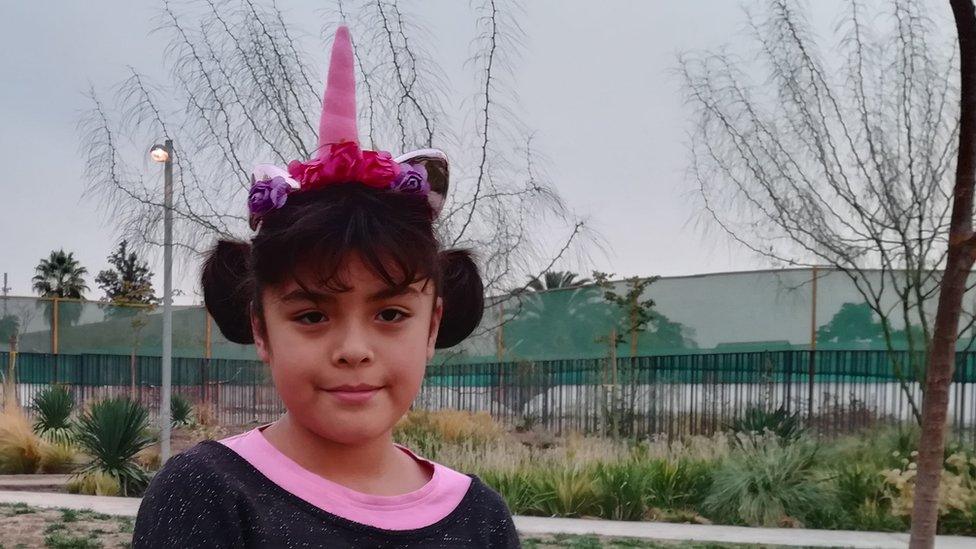
Sofía says she has made friends in her new school and is happy
But there are plenty of conservative politicians and religious groups fighting hard to get the bill stopped.
The head of Chile's Catholic Church, Cardinal Ricardo Ezzati, said that children should not be able to legally change their name and sex on their ID arguing that "a cat will not become a dog just because I give it a dog's name".
His comments caused outrage, but there is still a section of Chilean society that supports him.
Jacqueline moved Sofía from a strict Catholic school to a new one, where the teachers are more supportive. The family has decided not to tell any of the children or parents that Sofía is transgender so that she will not be picked on.
"It's much better than my last school," says Sofía. "I enjoy playing with unicorns, wearing dresses and doing gymnastics."
Jacqueline and others from the transgender community hope Chile's laws will change so that Sofía and others like her can get on with enjoying their lives.